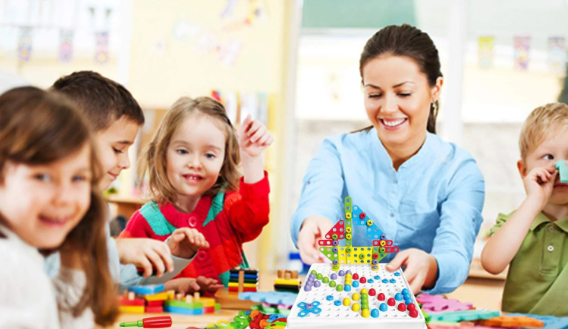
Physical Development Motor development means the developments of control over bodily movements through the coordinated activity of nerve centers, nerves and muscles.
Fine motor muscle development This term refers to skills that require smaller movement and more intricate capabilities such as grasping writing, holding small objects etc. Overall, when we say that a child has appropriate fine motor skills, it means that he can use his hands appropriately for a child of his age.
Fine motor skill is the coordination of small muscles in movement with the eyes, hands and fingers. The complex levels of performing tasks, especially with the hands that humans exhibit can be related to the nervous system. Fine motor skills aid in the growth of intelligence and develop continuously throughout the stages of human development.
The most common Fine motor skills are finger and hand skills such as writing, cutting, opening lunch boxes, and tying shoelaces etc.
Gross motor development:
It is the control over actions that helps infants and children get around in the environment like crawling, standing, walking, running, playing sports. It requires balance and coordination. Gross motor skills are the abilities usually acquired during childhood as part of a child’s motor learning. By the time they reach two years of age, almost all children are able to stand up, walk and run, walk upstairs, etc. Examples of gross motor skills are riding a tricycle, swinging across monkey bars, catching a ball or balancing on one leg.
Essentials for learning motor skills:
Common Motor skills of childhood:
Some motor skills are commonly found among all children in a given culture because of similar learning experiences and similar adult expectations. For example, in our culture, all children are expected to feed and dress themselves, play the approved games. And all these skills must be learnt at approximately the same age.